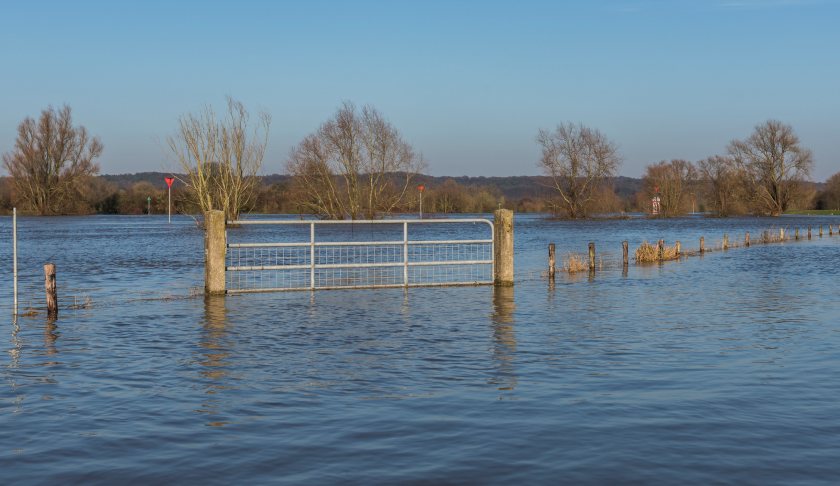NFU calls for flood defence boost amid farmland risk warning

The NFU has renewed calls for urgent government investment in flooding infrastructure following a stark warning from the Climate Change Committee (CCC).
In its latest progress report, the CCC highlights that the UK remains ill-prepared for increasingly frequent and severe weather events, placing UK food production in jeopardy.
The committee warns in a new report released today (30 April) that more than half of England’s highest quality agricultural land is now at risk of flooding.
The NFU says the findings underscore the need for decisive action in the upcoming government Spending Review.
Adding to the alarm, the National Audit Office recently revealed an ongoing funding gap in Environment Agency flood maintenance, a shortfall that rural areas felt acutely in 2024— one of the wettest years on record.
The report comes as many farmers are still recovering from flood-related damage that struck their land and disrupted their livelihoods last year.
NFU President Tom Bradshaw said: “Last year we experienced one of the most challenging growing seasons in living memory with thousands of acres of farmland under water early in the year.
"Even now, more than 12 months on and during the warmest week of the year so far, farm businesses are still working to recover."
Not only does flooding cause significant damage to people’s properties and livelihoods, it also puts the UK’s food production at risk.
Last year’s wheat harvest was one of the worst in 20 years, at a time when global food supply chains are increasingly unstable.
“Recovering from flood damage comes at a huge cost to the taxpayer," Mr Bradshaw explained.
"Climate extremes are not going away and we need to be investing in the maintenance and expansion of our flooding defences now to minimise damage in the future.”
In light of these findings, the NFU is calling on the chancellor to establish a long-term funding plan to overhaul the UK’s flooding infrastructure, with a focus on meeting the specific needs of rural areas.
While the government has previously pointed to Environmental Land Management (ELM) schemes as a primary tool for mitigating flood risk, the NFU says the recent closure of the Sustainable Farming Incentive (SFI) scheme has left a critical gap in support.
Mr Bradshaw concluded that this showed how disjointed policies and funding decisions can be — a point the CCC also raises in its report.
"In 2023 the government said the best way farmers could adapt their businesses to a changing climate was through the SFI scheme, but then this year it shut up shop," he said.
“We need an agricultural budget which allows more farms to take these important measures through the SFI, and a nationwide flooding investment plan, which recognises rural needs.”








